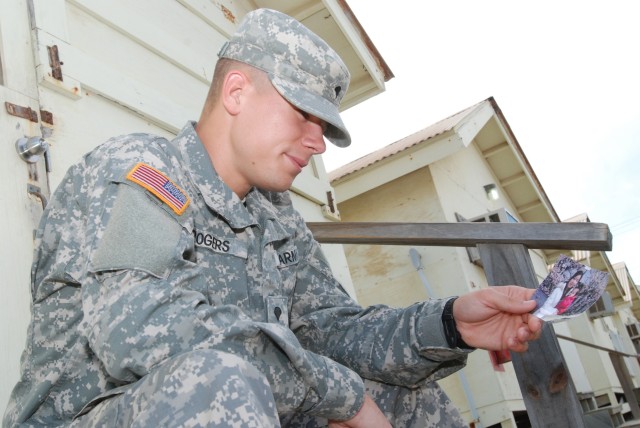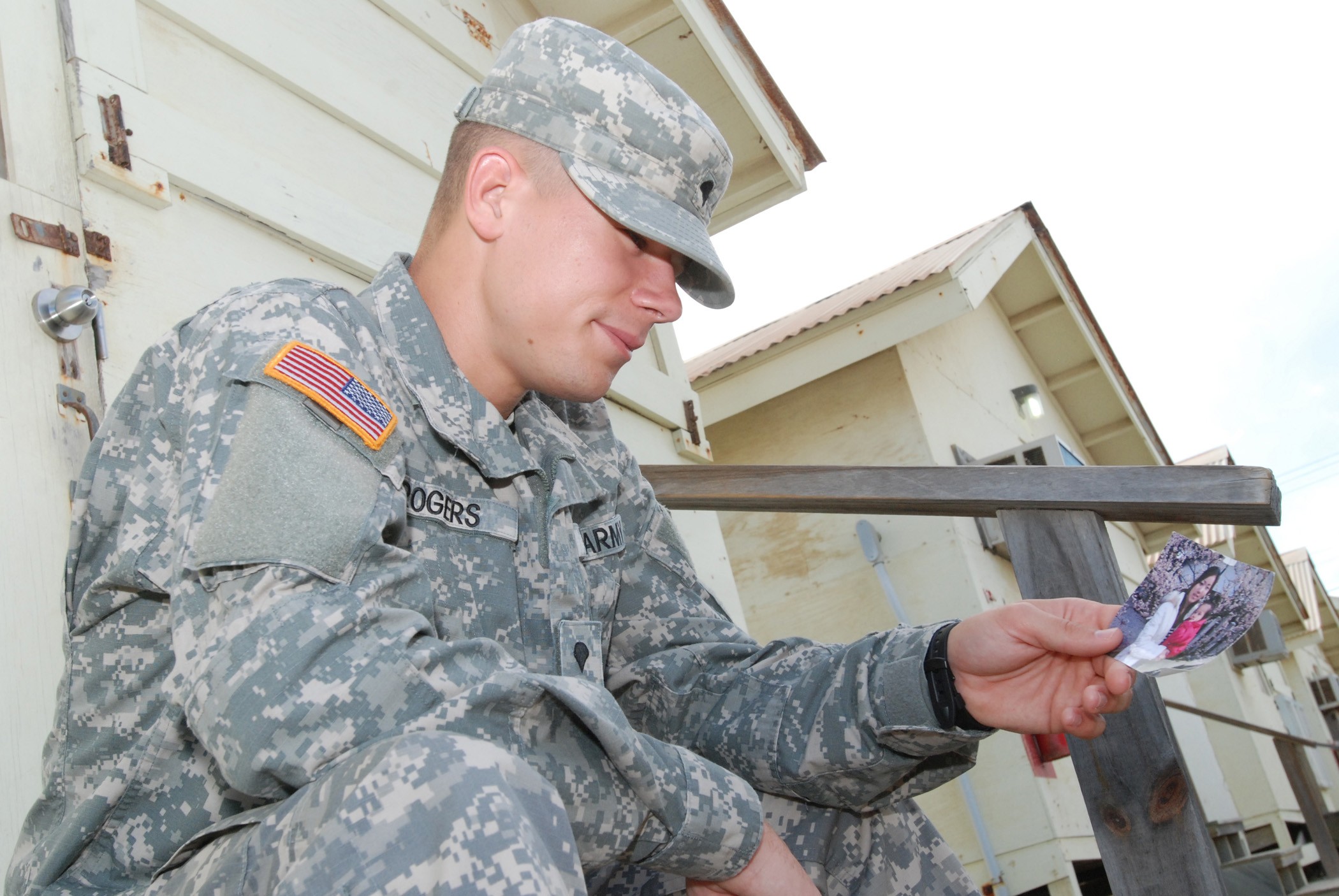GUANTANAMO BAY, Cuba (Army News Service, March 22, 2010) -- The photos say it all --smiling faces of family and friends, and favorite places prominently displayed on desks and on walls. They're reminders of other places and other people -- all miles away from here.
Joint Task Force servicemembers and Naval Station Guantanamo Bay personnel come to the island from duty stations across the world, and often leave their families and loved ones behind -- sometimes on bases that are unfamiliar to them. Lee Adelman, an education services facilitator at the Fleet and Family Support Center, or FFSC, here explained how difficult that can be.
In many instances, the spouse's role -- like raising children or balancing the family budget, is greatly enhanced as the servicemember leaves for deployment.
"When the sponsor is deployed, inevitably the spouse takes on the role of the sponsor, and the workload and responsibilities that were once shared are now significantly increased," said Adelman.
The geographic separation begins when the sponsor receives orders for an unaccompanied tour. Depending on the place and job, these tours can range from four months to two years.
Army Spc. Aaron Rogers's wife is pregnant as she raises their 2-year-old daughter in Japan.
Rogers, with the 525th Military Police Battalion, is here on a one-year deployment away from his wife and daughter, and will return home later this year.
"When we met, I was in the Air Force and she knew what she was marrying into," said Rogers. "It's hard on all of us, especially with my wife being pregnant. So, we work together to do what we can to make it easier."
Once a week, Rogers makes an international call in the morning, taking the 14-hour time-zone difference into consideration. He feels that being separated only strengthens their relationship in the long run.
"I feel that when we get back together, we will have a better appreciation of what it means to be a family," he said.
In some cases, the family of the deployed member is left behind in a location that is remote from their original home. That can create even more stress on the marriage.
"For newly married couples apart during a deployment, it can often be a challenging time," Adelman said. "To help couples strengthen their marriage and parenting skills, many programs and services are offered to help meet the unique challenges of the military family."
FFSC provides essential life skills classes and counseling to military and civilian personnel. The FFSC plays a helping role within the community by providing Guantanamo Bay with family and relationship support services. These services include classes on building relationships across the miles, alternatives to violence, loving relationships, family advocacy program, parenting and couple's communication. In doing so, these programs enhance operational readiness and retention support services, and as a result enhance the quality of life for all station personnel.
Additional services offered for military personnel include access to liberty centers and use of their computers with Internet access and Web cams, allowing video chat with families. Programs like United Through Reading enable military personnel an opportunity to have a more personal moment with their children.
Other organizations that play a significant role in reducing deployment related stress throughout the naval station are the Navy Exchange and Morale, Welfare and Recreation, said Adelman.
For more information about Joint Task Force Guantanamo, visit the Web site at www.jtfgtmo.southcom.mil.


Social Sharing